04.12.13
“I want to wander, in my Meadows, to ramble over my Mountains, and to sit in Solitude, or with her who has all my Heart, by the side of the Brooks. These beautiful scenes, would contribute more to my Happiness than the sublime ones which surround me.”
– John Adams in a letter to Abigail Adams. March 16, 1777. Philadelphia, PA.
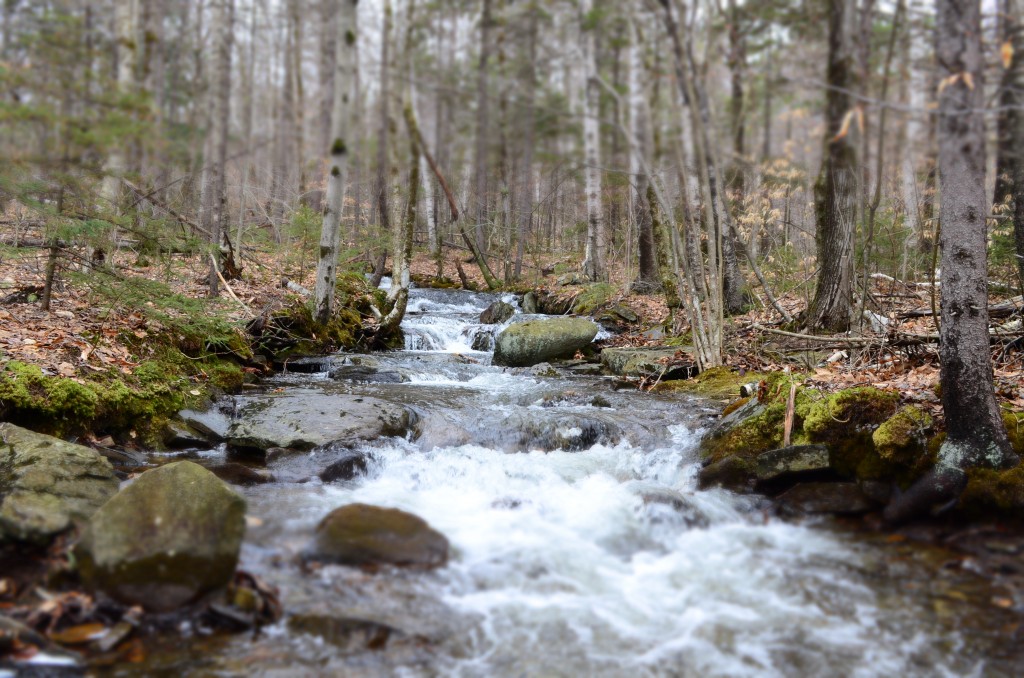
Here is a quick summary of the past week:
Monday: Out with my wife in short-sleeves all day. While driving, the windows are rolled down.
Tuesday: All windows in the house open. Screens are pulled out of storage and put back into place.
Wednesday: Noticed the first mosquito of the year, in the park office. First thunder and lightning of the year later in the afternoon.
Thursday: Out doing trail assessment and Spring clearing of debris.
Today: Snow, Sleet, and a driving wind.
Welcome to Springtime in New Hampshire.
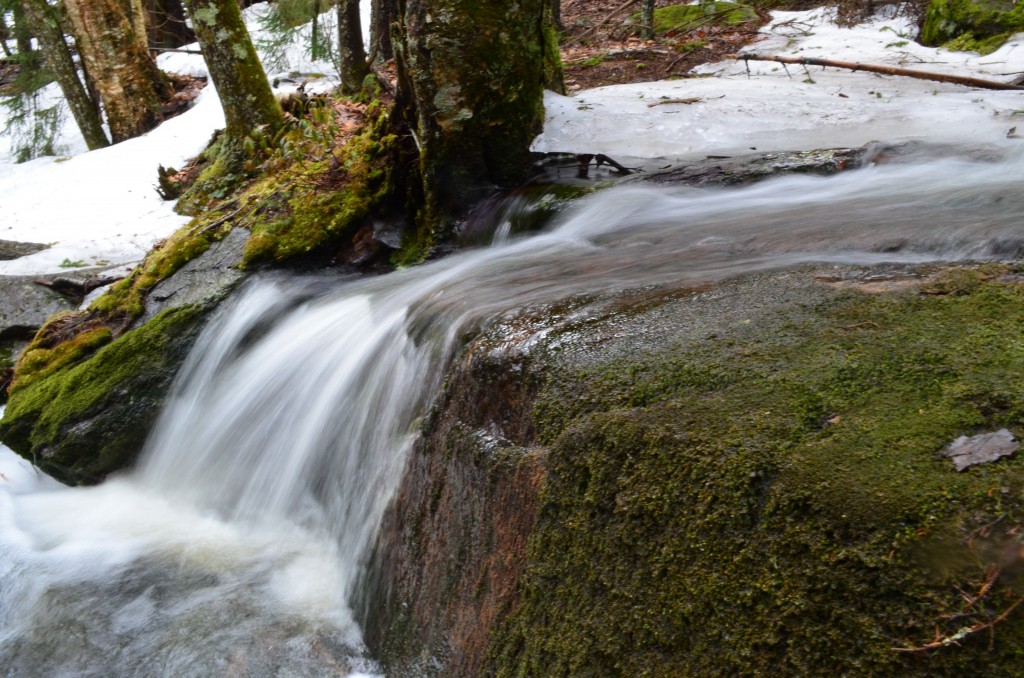
Snow is already lightly accumulating outside of the Monadnock office as I type. However, I do not expect it to last long.
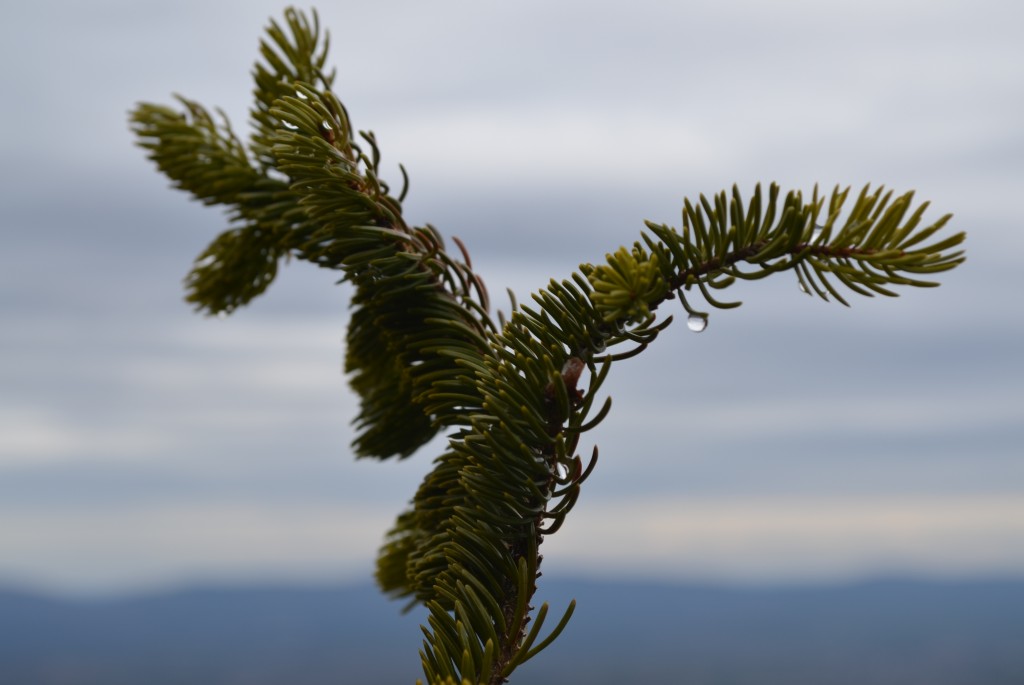
Generally, the summit and lowest elevations on Monadnock were clear of snow and ice this past week. Pockets of snow and areas of ice have been clinging to many sections in the middle elevations. MicroSpikes have been needed for most trails leading up to the summit with the exception of the White Dot. The Dot still has snow and ice in some areas, but you could have picked your way around it while staying on trail.
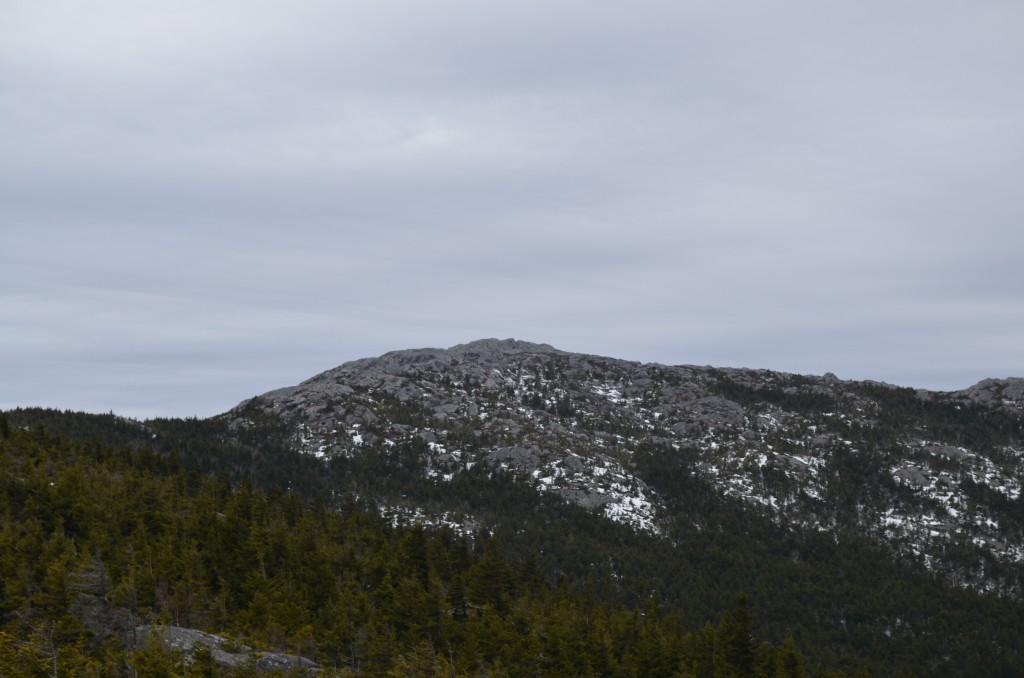
Saturday looks like a clear and warmer day, although hikers should still pack clothing layers, hats, and gloves.
Sunday will bring back colder temperatures and mix in some sleet and rain during the day, likely carrying over from the night before.
The long term forecast into next week looks generally more favorable, with temperatures starting to rise again. Look for some potential rain in the Monadnock Region by midweek.
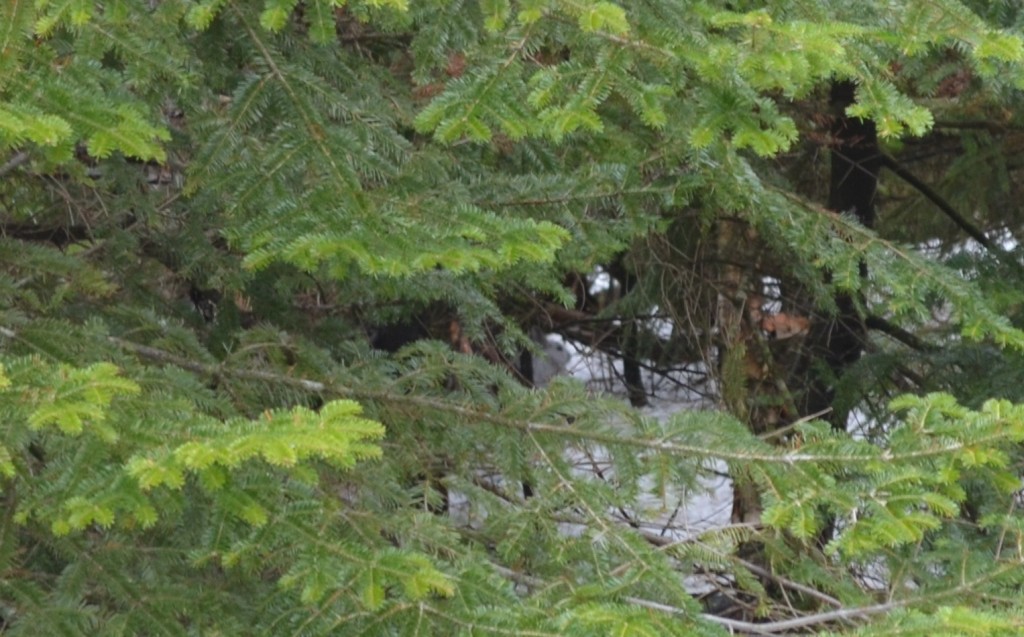
Especially on the heels of the snow and sleet falling now, hikers should continue to pack their light spiked traction with them as a general rule of thumb on Monadnock for the time being. Even on clear and warm days, Monadnock continues its Spring thaw, so your hiking boots will get wet and muddy. Prepare accordingly and for the sake of the health of Monadnock and her paths, stay on trail! For those who do not embrace a pair of dirty hiking boots, trail conditions will not be favorable to you for another couple of weeks here.
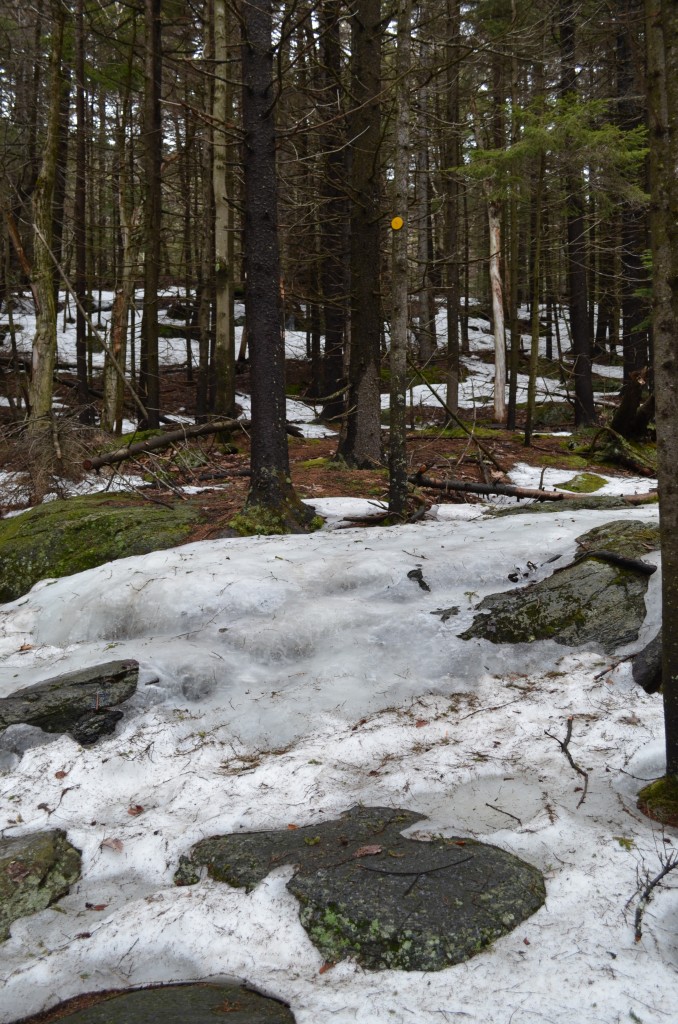
Goodbye to Winter
Despite the wintery scene on the other side of the window now, Spring is more or less here. Besides, what would a New Hampshire Spring be without some snow?
The blog has been a pleasure to write each week and I have enjoyed capturing images of our Monadnock over the winter months to share with you.
As a way to wrap up what was a fair winter on the hill, I have compiled a video of photographs. Some you may recognize images from this winter’s blog posts, others I have not shared with anyone yet. Monadnock staffer Zach Benton allowed us to use one of his original songs for the video, to which I am grateful. So, if you can spare 4 minutes of your time, reflect on the winter of 2012-2013 at Monadnock State Park by clicking the link below and let me know what you think!:
On The Heights
As the highest peak in New Hampshire south of the White Mountains, Mount Monadnock has garnered the infatuation of its neighboring inhabitants for hundreds of years. Monadnock’s stature was respected by the Native Americans to the point that the name “Monadnock” is derived from an Algonquin word loosely translating to “place of the unexcelled mountain”.
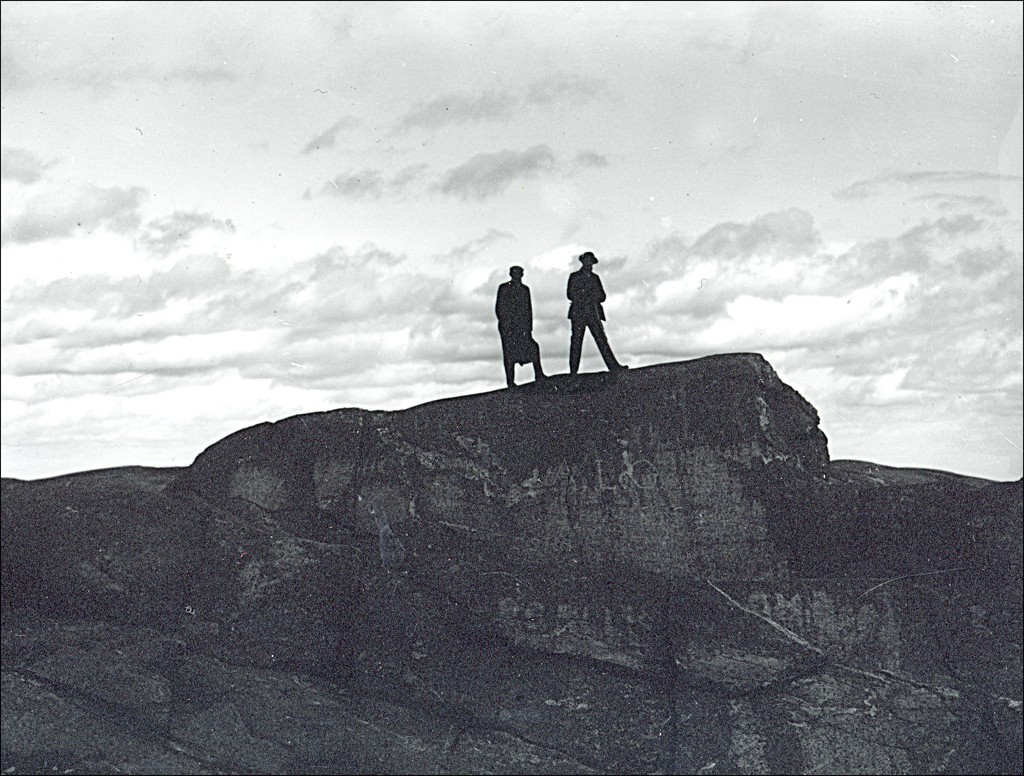
Scientists and naturalists have been amongst those who felt the insatiable draw of the mountain and it’s peak over time. Even though Monadnock’s height is not as notable as many other higher peaks, its elevation above sea level has been an ongoing curiosity. Here is a brief history of Monadnock measurements that I am aware of:
1780- James Winthrop took the first height measurement of Monadnock with a barometer and measured it at 3,254 feet. Winthrop noted the bare rock at the summit, which he found “at the upper edge of the wood 2,682 feet, and at the highest point of rock 3,254 feet.”
1816- Dr. J. Freeman Dana reported in the New England Journal of Medicine that he measured the height of Monadnock with his barometer at 3,450 feet.
1830- Captain Alden Partridge of the Norwich Military Academy in Vermont measures Monadnock at 3,188 feet.
1861- The U.S. Coastal Survey Team spent the summer on Monadnock. The men stayed near the summit and tested observation equipment, took measurements, and communicated with other survey teams on local mountains. They measure Monadnock’s height to be 3,166 feet above sea level. Their 3166 engraving at the summit can still be seen today, more than 150 years later.
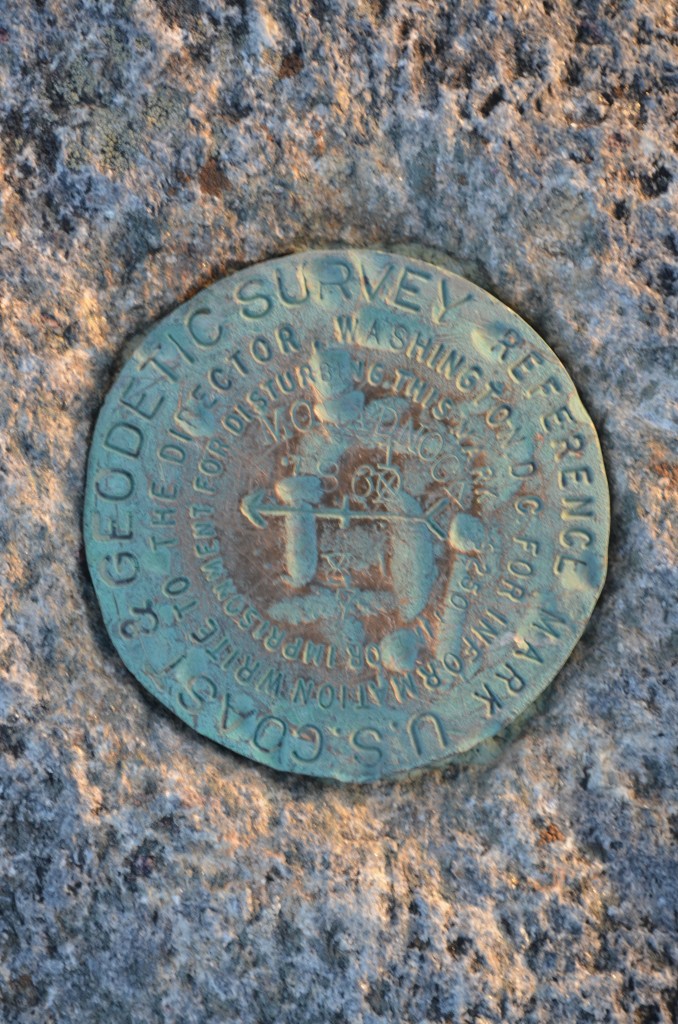
1878- J.J. Holbrook, a civil engineer from Keene, NH, measured Monadnock at 3,169 feet.
1884-The Dictionary of Altitudes in the United States gives Monadnock an elevation of 3,718 feet “on the authority of Professor Arnold Guyot”.
1886- Edward C. Pickering, a Harvard Astronomy professor, published in an essay that he measured Monadnock with surveying equipment at 3,169 feet.
1900- Raphael Pumpelly measures Monadnock to be 3,180 feet.
1906-The Dictionary of Altitudes in the United States lists Monadnock at 3,186 feet, as determined by the United States Coast and Geodetic Survey.
1931- The bronze survey benchmark disc is put into place on the summit by the U.S. Geological Survey, listing Mt.Monadnock’s official elevation at 3,165 feet.
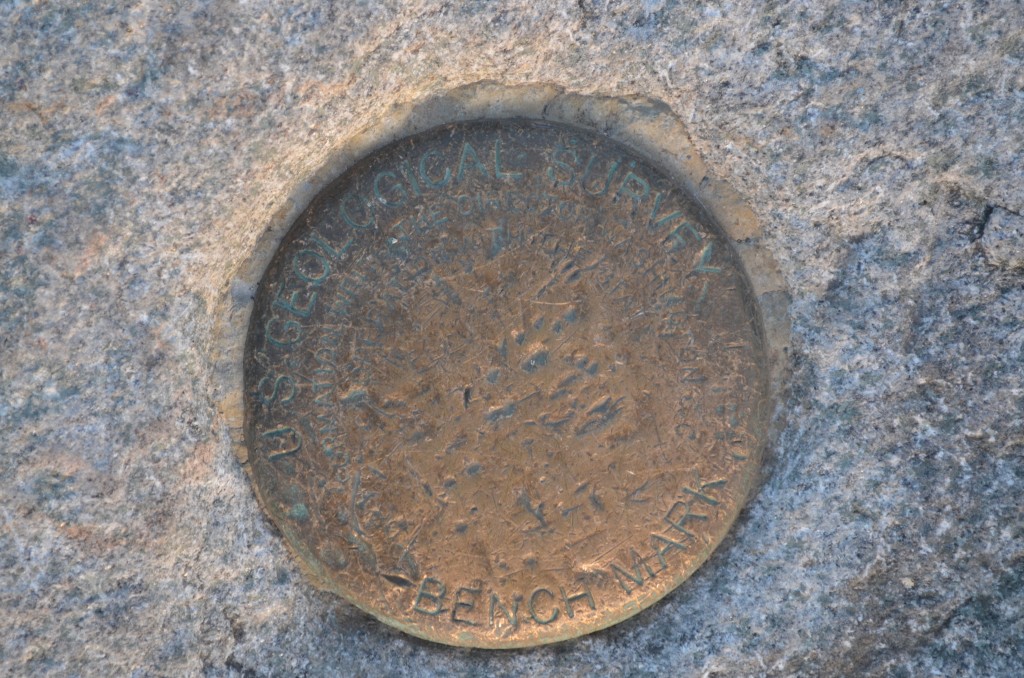
3,165 feet above sea level has been used as the official height measurement for Monadnock ever since. Recently, The Appalachian Mountain Club determined Monadnock’s height to be 3,159 feet. They explained their reasoning and how they came up with the number and I have to admit that I don’t recall how or why they arrived at that, nor do I remember being sold on their explanation.
So, we continue to use the official Federal Government’s 1931 measurement of 3,165 feet for Monadnock’s height.
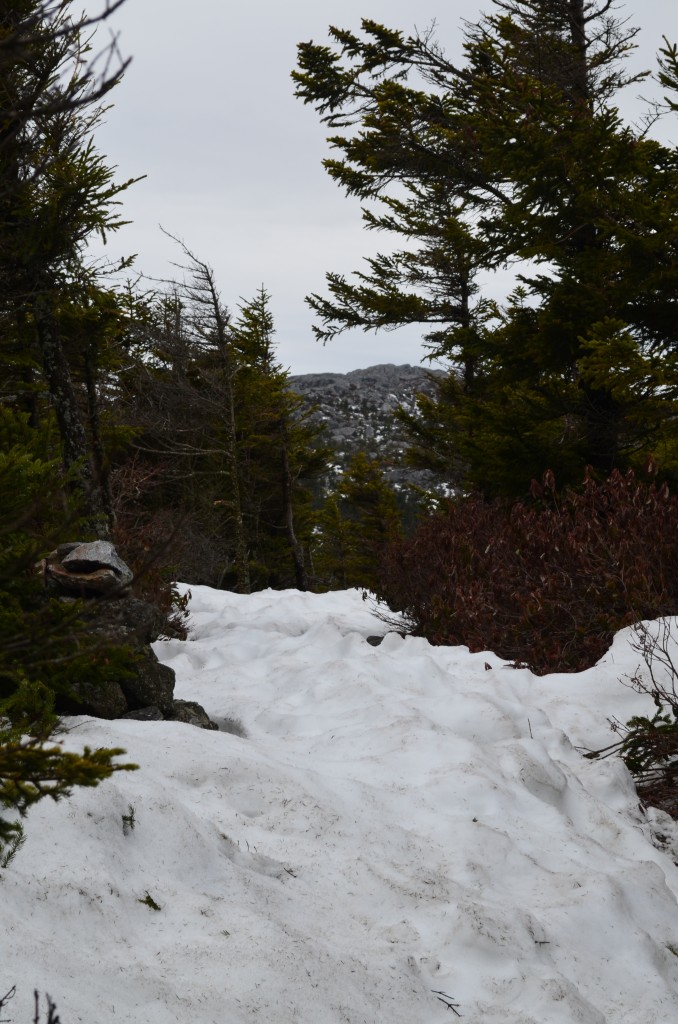
I am impressed with the 1861 measurement from the U.S. Coastal Survey, coming within 1 foot of the accepted elevation. I am also dually impressed with both J.J. Holbrook and Edward Pickering, both of whom came within 4 feet of the mountain’s height more than 125 years ago.
However, compared to the other measurements, I question the “authority” of Professor Arnold Guyot.
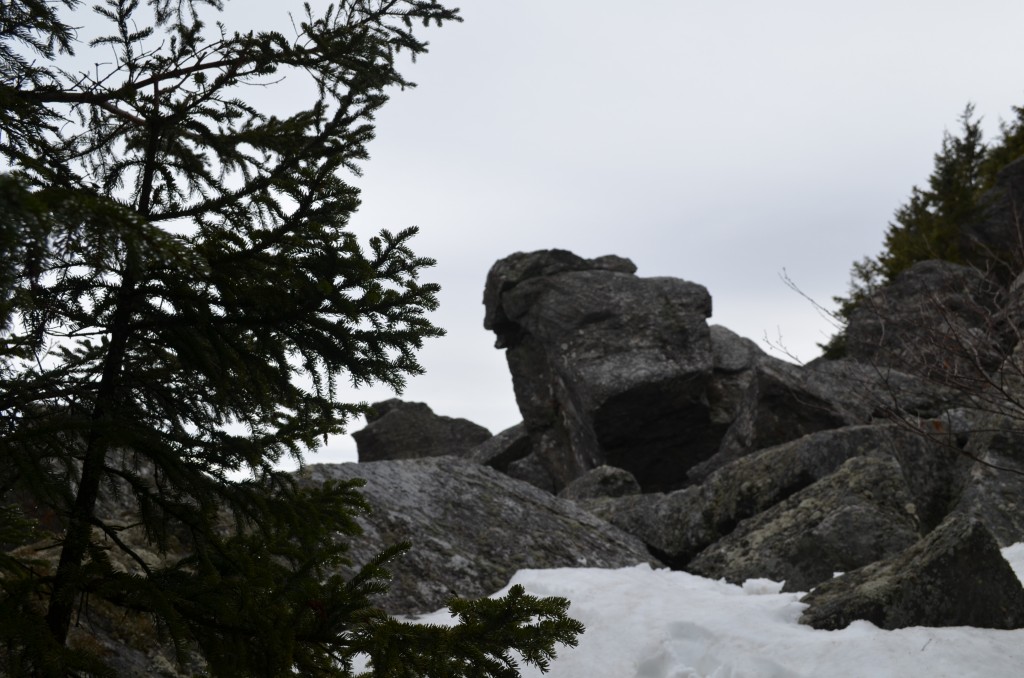

I really enjoy the weekly report on trail conditions and the photos that accompany the text. I love hiking Monadnock and hiked during the winter for the first time about a month ago. Have you ever given any thought to suggesting photo spots ? I always seem to miss the ones you have posted.
Thank you, Hollus. I am getting more questions about the photographs, the equipment I use, etc. I plan to include some more information for those who are curious in an upcoming Monadnock blog post.